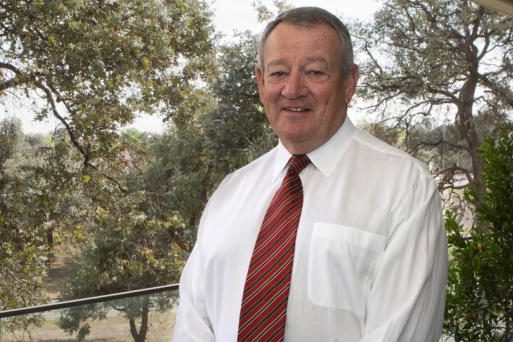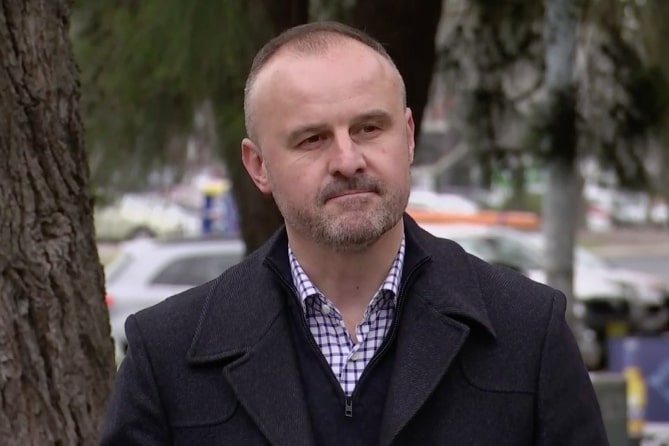
“Witnesses must tell the truth and that giving false or misleading evidence… may be considered a contempt of the Assembly.” Did Andrew Barr mislead the Public Accounts Committee? He certainly got his history wrong, say JON STANHOPE & KHALID AHMED.
Chief Minister and Treasurer Andrew Barr made an extraordinary claim before the Standing Committee on Public Accounts on February 29.
The hearings were part of an inquiry into the supplementary appropriations sought by the government through its 2023-24 Budget Review.
When asked by the committee chair, Liberal MLA Ed Cocks, whether he, as treasurer, had ever managed to deliver a surplus under the standard UPF (Uniform Presentation Framework) net operating balance, Mr Barr replied, as detailed in the following Hansard extract, that no one in the history of self-government has ever delivered a UPF surplus.
The chair: Mr Barr, I would appreciate it if we could stay on the question, which was about whether you, as treasurer, had managed to hand down any surplus in line with the standard UPF net operating balance approach.
Mr Barr: No-one has, Mr Cocks; no-one in the history of self-government.
The chair: Mr Barr, the question was about your tenure as treasurer. I would appreciate that you, respectfully—
Mr Barr: I, like every other Treasurer, have not delivered a UPF surplus. No Treasurer has.
The chair: Thank you, Mr Barr. Are you referring to in the ACT or in the country?
Mr Barr: In the ACT.
What is so remarkable about Barr’s claim is the fact that:
(a) information to the contrary exists on the Treasury website;
(b) A senior Treasury official had, before this exchange, declined to provide a categorical answer to the same question on the basis that he did not have the information to hand; and
(c) the committee chair had invited Treasury to take the question on notice.
We are, in any event, most concerned that Barr may have misled the committee.
Later on in the hearings, it was also wrongly claimed that the current government’s preferred budget measure, which includes gains made on superannuation investments, has been in place since 2006-07. This assertion is simply incorrect.
Below we seek to set the record straight on the budget measures, that have in fact, been adopted by successive ACT governments, and the UPF operating results.
The development of UPF has a long history. While acknowledging that accounting frameworks and measures do not make for particularly exciting reading, they are fundamentally important to transparency and accountability in the management of public finances.
Therefore, it is useful to highlight some key aspects of the development and introduction of UPF as a budget measure.
Traditionally, governments in Australia budgeted and reported on standards set by the Australian Accounting Standards Board (AASB). National reporting by the Australian Bureau of Statistics was based on Government Finance Statistics (GFS).
However, the 1991 Premiers’ Conference agreed to the introduction of UPF, which harmonises the two key frameworks, namely, GFS and Generally Accepted Accounting Principles.
The objective in doing so was to facilitate the comparison of the financial positions of the respective governments in Australia, on an agreed and consistent basis.

A major revision to the UPF was prompted by a new Accounting Standard for government reporting, (AASB 1049) in 2007. The resultant 2008 UPF Framework remained in operation for more than a decade, and was updated in 2019, to account for changes in the GFS framework.
Some governments began adopting GFS for budgeting purposes before the 2008 UPF framework. For example, NSW adopted the GFS Net Operating Balance in its 2005-06 budget.
In the ACT, then Treasurer Ted Quinlan released a discussion paper in parallel with the 2004-05 budget outlining a proposed future format for budget papers to reflect national harmonisation as well as triple bottom line reporting.
The ACT, with Jon Stanhope as treasurer, adopted the GFS measure of operating balance in 2006-07 (Budget Paper 3; Page 32) noting that: “Over the past several years, the territory has recorded large GFS deficits, while achieving operating surpluses under the AAS measure”. It was an “inconvenient” but an essential change.
The UPF Net Operating Balance, as the main budget measure, was formally adopted by the ACT in the 2007-08 budget papers.
The UPF Net Operating Balance continued to be presented in the budget papers until 2012-13.
Readers interested in verifying this can access Budget Paper 3 at the Treasury website and view the UPF Net Operating Balance for the budget and forward years in Chapter 2, Table 2.1.1 for each of the relevant years.
However, in 2013-14, Table 2.1.1 includes a different measure, and the “Headline Net Operating Balance” was introduced, by Treasurer Andrew Barr.
Notably it is derived by adding the impact of long-term superannuation investment earnings to the UPF Net Operating Balance.
Interestingly, in that year, the UPF NOB was also identified upfront in the budget papers. However, from 2014-15 onwards, the UPF NOB was abandoned in full and replaced by the “Headline Net Operating Balance”, which is neither a UPF measure, nor an AAS measure of operating result.
As such, no comparable result is available in the audited financial statements, which means that neither the true state of the ACT’s finances or a ready comparison of the health of the ACT budget vis a vis the other states and the NT is available.
Table 1 incorporates both the original operating budget forecast and the actual results achieved over the period 2006-07 to 2013-14.

The Consolidated Annual Financial Statements (audited by the Auditor-General) are available on the Treasury website here.
It is abundantly clear from the budget papers that the ACT Government began preparations in 2004-05, under Treasurer Quinlan’s guidance to adopt the UPF. It subsequently adopted GFS in 2006-07 and adopted the UPF in 2007-08. It is also clear that over the six years from 2006-07 to 2011-12, five surpluses were delivered, one under GFS and four under the UPF. It is also true that since 2012-13, when Mr Barr became Treasurer, there has not, as we have previously noted, been a single ACT budget surplus.
Table 1 highlights some further interesting points. With the exception of 2008-09, the year the Global Financial Crisis hit the budget, the actual budget outcomes were an improvement on the original budget forecasts, reflecting genuine fiscal discipline.
Second, the strong operating budget position in 2007-08 provided a buffer against the impact of the GFC to the extent that the territory’s budget returned to surplus within one year.
The discussion above has focused on the years in which UPF was the budget measure, and the respective results in those years.
We do however acknowledge the arduous and vital work undertaken prior to that by chief ministers and treasurers Kate Carnell and Gary Humphries in addressing the structural financial problems that beset the ACT following the withdrawal of the transition funding arrangements after self-government.
We do note, as an aside, and without comment, that all witnesses appearing before an ACT Assembly Committee are advised that: “Witnesses must tell the truth and that giving false or misleading evidence will be treated as a serious matter, and may be considered a contempt of the Assembly.”
Jon Stanhope is a former chief minister of the ACT and Dr Khalid Ahmed a former senior ACT Treasury official.
Who can be trusted?
In a world of spin and confusion, there’s never been a more important time to support independent journalism in Canberra.
If you trust our work online and want to enforce the power of independent voices, I invite you to make a small contribution.
Every dollar of support is invested back into our journalism to help keep citynews.com.au strong and free.
Thank you,
Ian Meikle, editor



![Teacher Vanessa Jones has been living in Higgins since 2001, and while she loves the area, she says she is “fed up” with the neglectful ACT government.
The Higgins shops have been completely abandoned, says Vanessa, preventing the opportunity for residents to have a community-centred space to socialise.
They only received bins nine months ago, she says, and requests for a water station and repairs to the bus station have gone unanswered.
“It’s very, very slow,” says Vanessa.
“I asked for the zebra crossing on Fullagar [Crescent] to be repainted, and we had to wait about six or nine months.
“That’s just such a long time… we pay a lot of rates.”
Vanessa says assistance from the government only seems to go to communities with time-rich and assertive communities, leaving places such as Higgins, where the majority of households have both adults working full-time and English may not be the first language of the family, at an automatic disadvantage.
“If you’ve got two people working, paying a mortgage, raising two or three kids, they don’t have the time,” says Vanessa.
Vanessa says the lack of attention quieter places such as Higgins is receiving is starting to look a lot like favouritism.
Read the full article on our website citynews.com.au
#canberra #canberranews](https://citynews.com.au/wp-content/plugins/instagram-feed/img/placeholder.png)
Leave a Reply